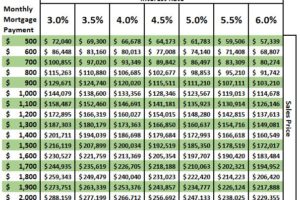BY RACHEL BURGER
Updated February 02, 2019
Construction managers oversee and lead a range of building projects from beginning to end. They are responsible for setting and keeping schedules, monitoring finances, and making certain that everybody is doing what they should, every day. Construction managers also help ensure that the workplace is free of safety hazards, and they deal with the various working relationships that exist on a job site.
Construction Manager Job Statistics
Nearly 75 percent of construction managers in America are independent contractors hired by clients in need of managers with specific work experience. Projects that use construction managers can range from small home renovation and remodeling jobs to larger commercial projects, like office buildings, hospitals, and schools. Many clients require an education background for managers that includes a minimum of a bachelor’s degree in a related field. According to the Bureau of Labor Statistics, the median annual wage in 2017 for construction managers in America was $91,370.
Responsibilities of a Construction Manager
The specific tasks of a construction manager can vary from project to project, but many roles are standard for the position.
Quality management. Construction projects quite often involve a number of contractors and subcontractors. One of the most important jobs of the construction manager is making certain everyone is doing quality work and not cutting any corners along the way.
Cost management. A good construction manager is constantly on top of costs and makes the necessary adjustments when unexpected complications or issues arise.
Safety management. Construction managers must identify and eliminate possible hazards for the safety of everyone on the job site.
Contract administration. It is the job of the construction manager to ensure that every provision of the contract is being met and that all parties involved are satisfied.
Beyond everything else, construction managers need to keep all parties involved well informed throughout the whole project. This includes the client, the architect, and any contractor or subcontractors involved. If issues arrive, the manager must be ready to deal with them immediately.
Looking to Become a Construction Manager?
Being an effective construction manager involves much more than just reading blueprints or spot-checking the quality of work being done. Good ones are knowledgeable about all standard building codes and often must be familiar with the latest construction practices, including environmentally friendly design and building. They need to be adept with industry-specific software and have a good working knowledge of all aspects of the job in general.
In addition to work experience, construction managers often must hold at least a bachelor’s degree in construction science/management or a related discipline, such as civil engineering. As part of a related course of study, aspiring construction managers study traditional subjects like statistics, mathematics, architecture, and information technology. They also receive specialized training in subjects like site design and planning, enforcement of building codes, scheduling, and cost estimation.
Construction managers possess excellent communication skills and can lead a diverse team that includes everyone involved in the process, from the client, designers, and architects to the site workers and tradespeople. Since most construction environments are fast-paced and projects are held to tight deadlines, the ability to effectively multitask is also a must for a successful construction manager.
Finally, clients today increasingly want a certified construction manager for their projects. Once an aspiring manager has some real-world experience, it is in his or her best interest to obtain a few industry certifications. The Construction Management Association of America (CMAA) and American Institute of Constructors (AIC) offer certifications that are in high demand. These certifications are awarded based on a person’s education level, real-world experience, and overall knowledge of the principles of construction management coupled with a written exam.




